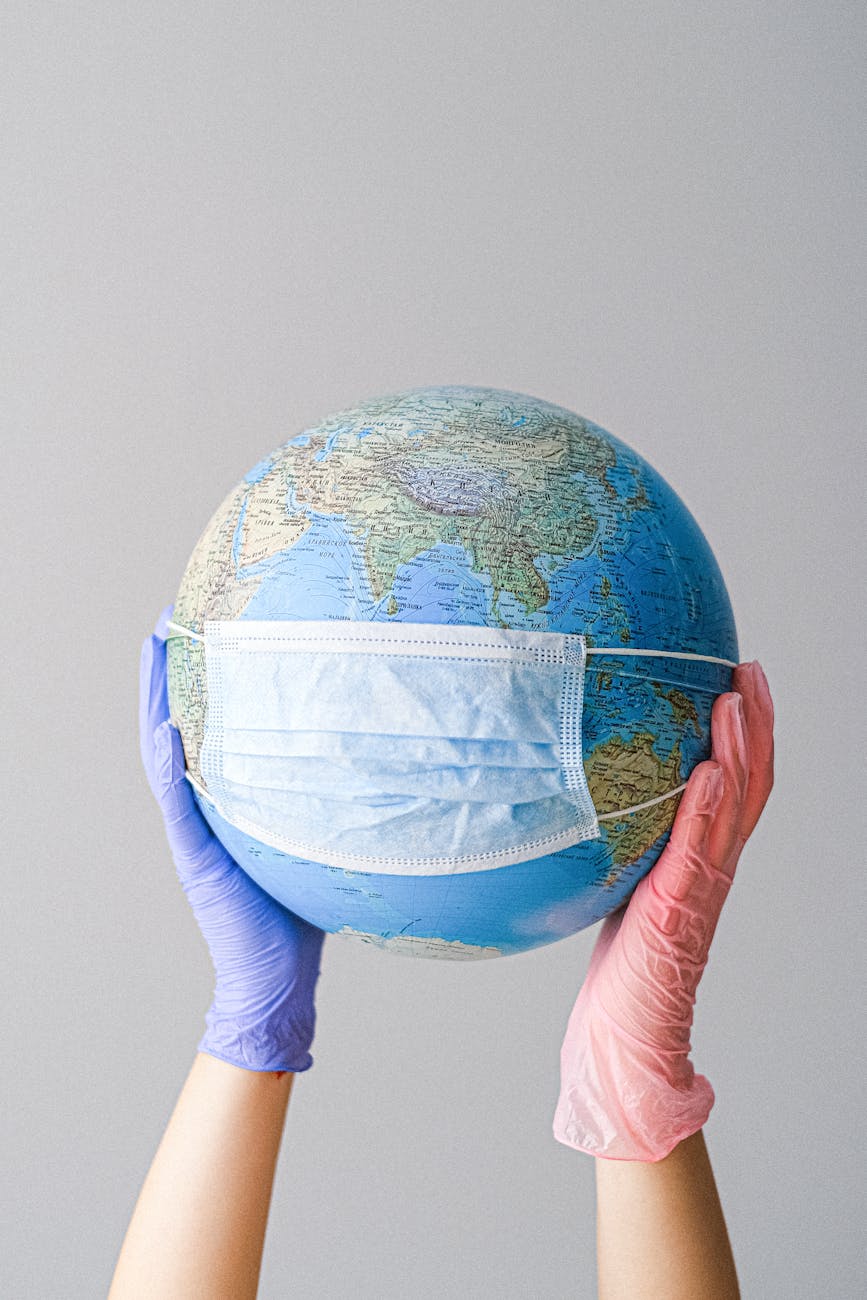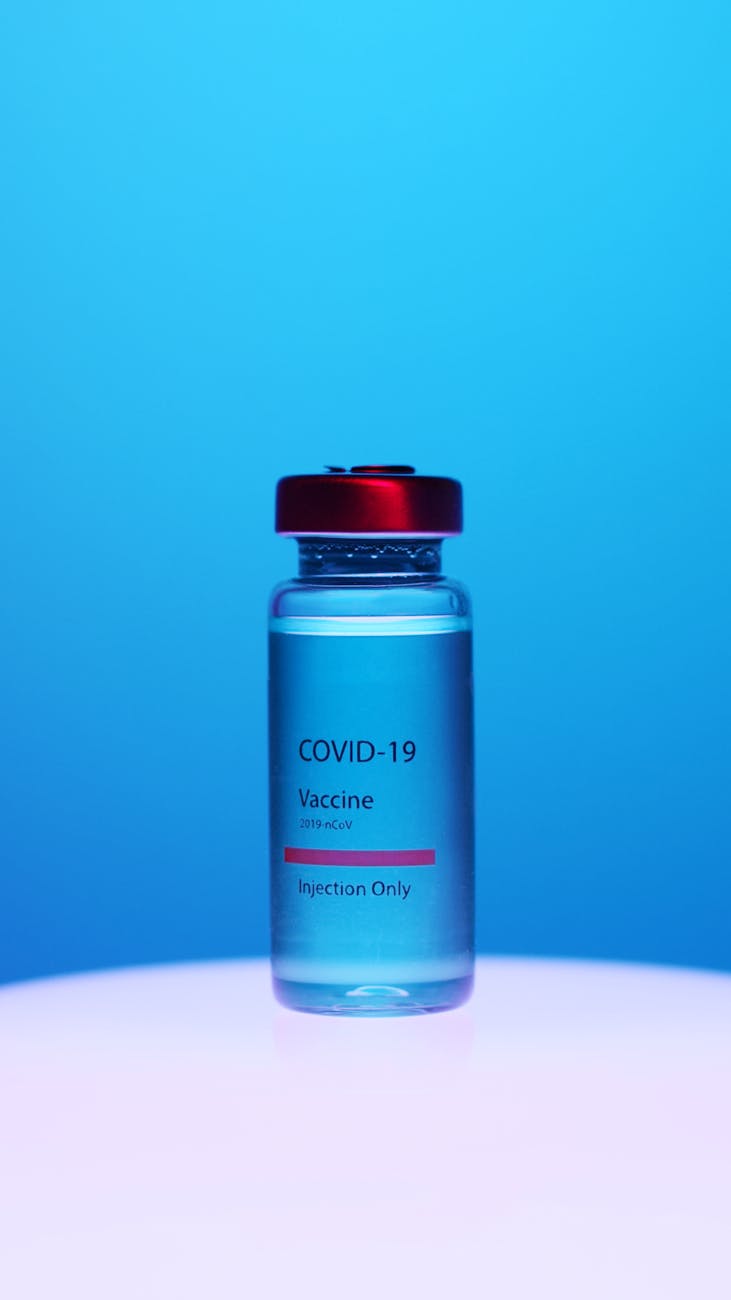Recently, the trending topic globally has been not only coronavirus but coronavirus vaccine as well. Initially, the whole discussion was on developing an effective COVID-19 vaccine, and the good news is that the vaccine is here now.
Now that the coronavirus vaccine is here, the question is, what do you know about this vaccine and how it will be used? In this article, we will answer questions, and discuss the 10 Important facts about Covid-19 vaccine.

Before we talk about the coronavirus vaccine, it is necessary to give updates on coronavirus and how far the global war has come in the fight against this deadly disease.
As you might already know, the novel coronavirus which was first discovered in Wuhan China early months of 2020 is from a family of viruses that presents with respiratory symptoms. The novel coronavirus was given the name ‘COVID-19’.
COVID-19 spreads via respiratory droplets of an infected person. An uninfected person might get infected with COVID-19 when they contact with surfaces the respiratory droplets might have fallen on. It is also possible to breathe in the virus if you are close to someone who has COVID-19.
For this reason, global health organizations like the World Health Organisation (WHO) and the Centers for Disease Control and Prevention (CDC) recommended different measures for curbing the spread of COVID-19. These measures include washing hands regularly, social distancing, wearing nose masks, shutting down public places, etc.
Did the COVID-19 measures help? Yes, COVID-19 measures proved helpful. However, people are still getting infected with coronavirus and falling sick, but it would have been worse if the COVID-19 precautionary measures were not implemented.
There came a resurgence in cases of coronavirus around October 2020. Countries affected such as Germany went into a second lockdown. At the same time, all ears were also alert awaiting news about the coronavirus vaccine which top pharmaceutical and biotechnology companies were reportedly developing.
On December 21, it was reported that European nations have begun imposing travel bans on Britain after the country reported cases of a more infectious and “out of control” strain of the coronavirus.
A UK-based Nigerian doctor, Dr. Olufunmilayo referred to it as a “new mutated coronavirus”. This new coronavirus variant is more dangerous than the strain the world is still currently battling because the new variant has higher transmissibility. This means it even spreads faster.
According to BBC News, the new COVID-19 variant was detected in September, and within a month, it had made up a quarter of the COVID-19 cases in London.
The potential for this virus to spread fast is a compelling reason why we need the COVID-19 vaccine.

So, what is the recent update about the coronavirus vaccine? Below are the answers to your questions and things to know about the coronavirus vaccine.
The first COVID-19 vaccine scientifically proven to be effective against the coronavirus has been developed. This first coronavirus vaccine was developed by the pharmaceutical company, Pfizer and the biotech company, BioNTech.
Reports show that the Pfizer/BioNTech coronavirus vaccine offers as much as 90% protection against the novel coronavirus.
According to the BBC, the Pfizer/BioNTech COVID-19 vaccine is the fastest vaccine ever developed by scientists from scratch (it took about ten months to be developed).
Aside from the Pfizer/BioNtech coronavirus vaccine, there is also the vaccine from Moderna which was announced not long after the first effective coronavirus was announced.
One of the things you should know about coronavirus vaccines is that they have been approved for use. In fact, the United Kingdom is the first country to approve Pfizer/BioNTech vaccine for use. It already ordered up to 40 million doses of the coronavirus vaccine and plans to order more by next month.
Also, the U.S. Food and Drug Administration on December 11, 2020, issued a first emergency use authorization (EUA) for the Pfizer/BioNTech coronavirus vaccine. This means the vaccine can now be distributed for use in the United States.
The Pfizer-BioNTech and the Moderna vaccines have been the first available vaccines to receive approval from the FDA.
However, by 2021 it is expected that other vaccines such as that of AstraZeneca and Janssen will be available. Also, Novavax has launched its coronavirus vaccine research trial.
Pfizer-BioNTech and Moderna vaccines currently available are quite effective against coronavirus infection.
According to early data made available in the United States, both vaccines (Pfizer and Moderna) showed 94 to 95 percent effectiveness against the novel coronavirus.
Most of the coronavirus vaccines being developed currently require that people receive two shots for it to be effective.
This means that individuals would receive the first shot of the vaccine and then, follow it up with the second shot after some weeks.
Currently, pregnant women and children will not be part of the COVID-19 vaccine distribution phase. This is because none of the currently available COVID-19 vaccines have been tested on pregnant women.
The Academy of Medicine Specialties, AMSN has advised against pregnant women taking the COVID-19 vaccine, adding that they should first consult their doctors.
For children, only one vaccine is currently being tested in children aged 12 and above. The FDA and CDC would require more data analysis and clinical trials before approving vaccines for these two groups.
Health experts are still not sure whether the coronavirus vaccine would offer lifetime immunity or not. The fact is that only a few vaccines offer lifetime immunity for people, e.g., the vaccine for measles.
Health experts have warned against having such longevity expectancy for the coronavirus vaccine. Thus, one thing you should know about the coronavirus vaccine is that you might have to get regular shots to stay protected. This is also because the coronavirus tends to mutate fast, almost like the flu.
Nigerians have been asking questions regarding the coronavirus vaccine which has been developed and is being distributed in other countries. One thing to know about the vaccine is that it is not yet available for use in Nigeria.
Nigeria’s Minister of Health, Osagie Ehanire said on Wednesday, December 16, 2020, that the Ministry has set up a committee to determine which vaccine would be best for Nigeria. Ehanire added that Nigerians would receive the COVID-19 vaccine by January 2021.
Another important thing you should know about the COVID-19 vaccine is its safety of use. Note that in medicine, there is a difference between “harmless” and “safe”.
Reports have it that two NHS workers who received the Pfizer vaccine had allergic reactions to it. Do we now say coronavirus vaccines are not safe to use because of this?
The answer is no. Every effective medicine has its side effects, and this doesn’t mean it is not safe. The safety of a drug simply means a comparison between the benefits and the side effects in which the benefits clearly outweigh the unwanted side effects.
According to the U.K.’s medicines regulator, the MHRA, the Pfizer-BioNTech vaccine meets this standard and has thus been declared safe for use.
According to the Centers for Disease Control and Prevention, the COVID-19 vaccine offers a high level of protection against contracting COVID-19. However, one thing to know about getting the coronavirus vaccine is that you might experience some side effects.
Experiencing side effects after receiving the coronavirus vaccine is not abnormal; you shouldn’t be worried about this. The side effects caused by the vaccine are a sign that your body is building immunity against coronavirus.
Some of the side effects you might experience after coronavirus vaccination are:
These side effects might affect your day-to-day activities after receiving the coronavirus vaccine. However, they should disappear within a few days. If they get severe or don’t go away within a few days, you must consult a doctor.
Health experts have thought that a COVID-19 vaccine might be a critical tool for curbing the pandemic, especially when combined with the existing preventive measures and adequate testing.
Since the coronavirus vaccines have been proven safe for use, will you resist taking the jab?
Do you think the public will respond positively to the vaccine?
What are your thoughts about the vaccine?
healthcareFebruary 27, 2025
healthcareAugust 20, 2025








